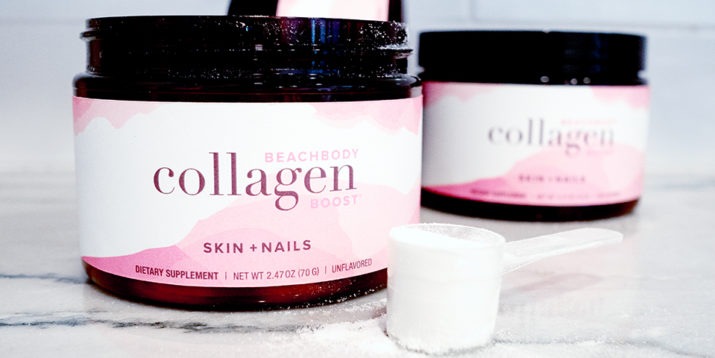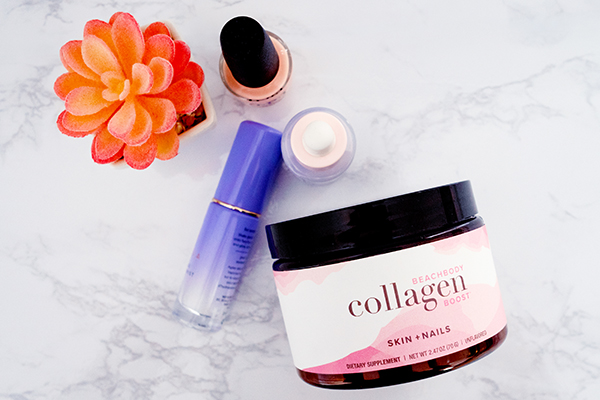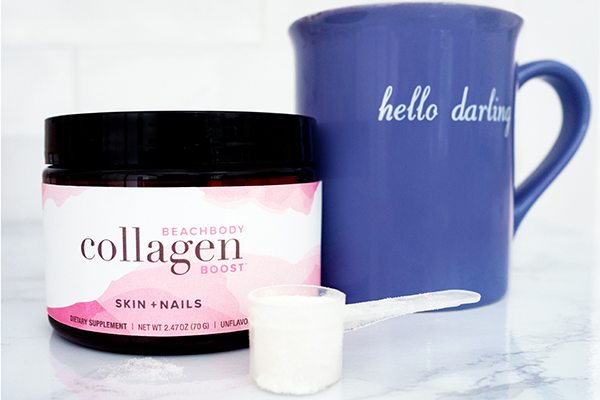What Is Collagen and What Does It Do?

If you follow nutritional and beauty trends, you’re well aware that collagen is the latest magical “it” supplement.
Whether you’re a trend follower or you thought “collagen” meant someone who attends a four-year university, you’ve still probably unknowingly eaten the stuff.
You see, gelatin is made from collagen, and you’ll find gelatin in everything — from gummy bears and cereal frosting to marshmallows and gel caps used for many medications.
So why bother taking a collagen supplement when an extra serving of Aunt Ruth’s ambrosia at your next family reunion should do the trick instead?
Unfortunately, it doesn’t quite work that way.
If you want to take a collagen supplement in order to take advantage of its many benefits, especially supporting your skin and nails, not all collagen is created equal.
Choosing the right type and amount can make all the difference.
What Is Collagen?
Collagen is the main structural protein in the body. It makes up 25 to 35 percent of our total protein content in the form of connective tissue like tendons, ligaments, cartilage, bones, and about 75 percent of your skin.
Collagen works side by side with another protein called elastin: Collagen fills out your skin, while elastin helps your skin “snap back” when stretched.
But starting at about 20 years old, your body’s ability to produce collagen and elastin dwindles, which is why we get saggy and wrinkly as we get older. #life
So why can’t you just eat a bunch of gummy bears and be done with it? Because life isn’t always fair.
Most dietary collagen and gelatin act just like all protein you consume — when digested, they’re broken down so you aren’t directly increasing the amount of your body’s collagen.
Rather, you’re providing peptides and amino acids to your “amino acid pool.”
This pool is what your body can draw upon for its various protein-requiring functions – of which collagen formation is one.

What Are the Benefits of Collagen Supplements?
Protein is made up of long chains of organic compounds called amino acids. There are 21 different amino acids, all of which play different roles in the body.
When we break down these long chains into shorter chains of two or more amino acids, they’re called “peptides.”
Various peptides play various roles, including telling other parts of the body to do various tasks.
“Peptides function as intercellular traffic lights, signaling cells to respond to a stimulus,” explains Katie Mikus, Ph.D.
Collagen protein contains peptides that bind to cell receptors, starting a cell-alerting cascade that turns on the production of collagen and elastin in our skin cells.
In other words, one of collagen’s jobs is to make more collagen.
Normally, when you consume collagen, or any other protein for that matter, the digestive process tears the long protein chain apart.
Some peptides may survive in a usable form, while others will be broken down into individual amino acids to support a variety of cellular functions.
However, BODi Bioactive Collagen Peptides is formulated with specific bioactive collagen peptides clinically shown to stimulate the creation of collagen and elastin — with just one small scoop.

Do Collagen Supplements Work?
In one study using 2.5 grams daily of the same bioactive collagen peptides found in BODi Bioactive Collagen Peptides, results showed that after four and eight weeks of supplementation, it reduced eye wrinkle volume, and after eight weeks of daily use, it resulted in higher content of procollagen type I and elastin.
Another similar study showed improvements in skin elasticity after four and eight weeks.
Interestingly, the study measured a placebo, a 2.5-gram daily dose, and a 5-gram daily dose and found the same benefit from 2.5 grams and 5 grams, showing that when it comes to collagen, more doesn’t necessarily mean more benefits.
Finally, a 24-week study using 2.5 grams of bioactive collagen peptides showed an increase in fingernail growth rate and a decrease in the frequency of broken fingernails.
One additional interesting thing about all of these studies is that participants were also evaluated four weeks after they stopped taking collagen: The benefits — fewer wrinkles, improved skin elasticity, and healthy nails — all held up.
Collagen is odorless and flavorless, which means you can add it to anything from your next Shakeology shake to chicken noodle soup.
And the science indicates serious benefits, so if you’re looking for healthier skin and nails, skip the gummy bears and reach for BODi Bioactive Collagen Peptides instead.
